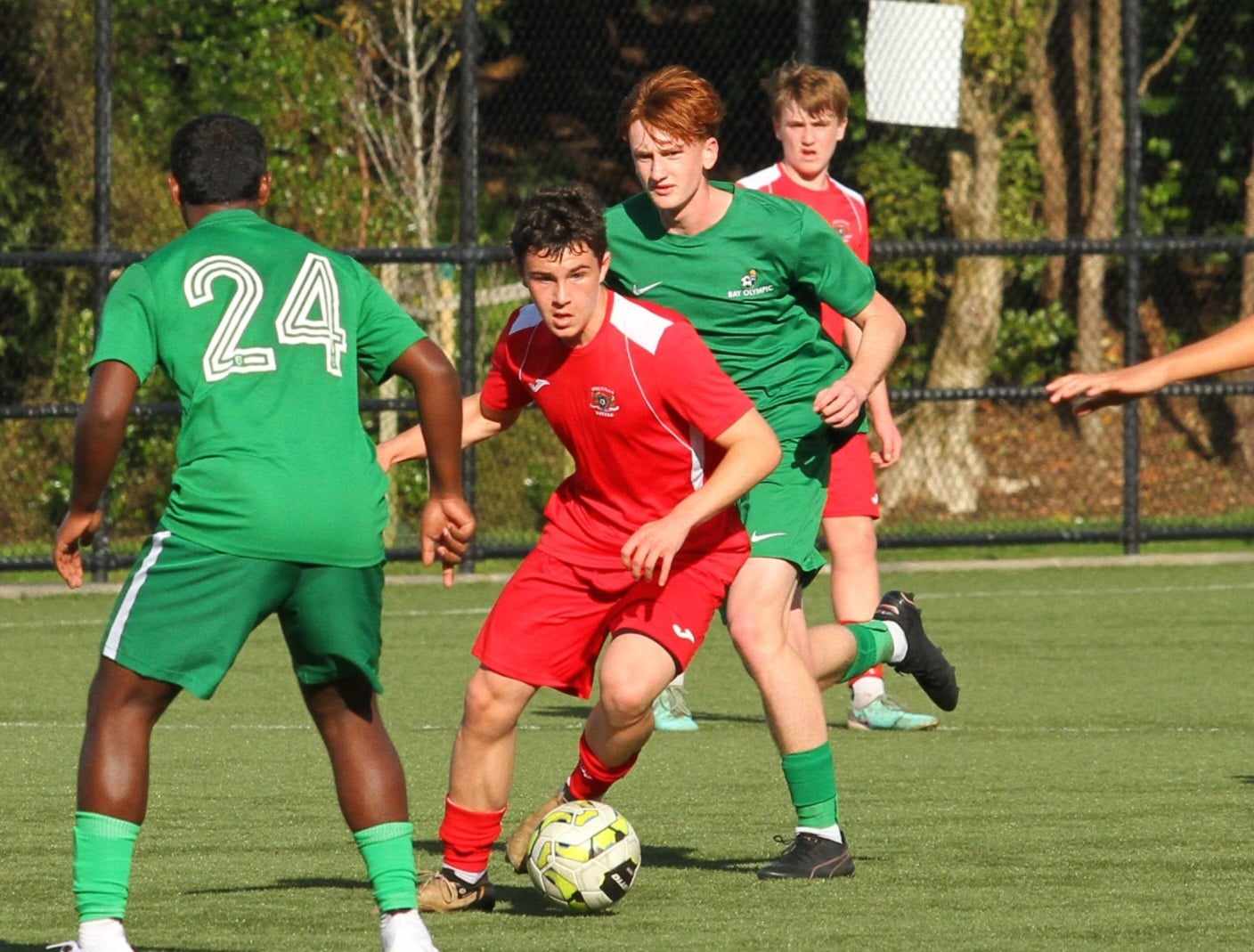
Melville United - A focus on youth development pathways

Melville United AFC is one of 11 Football clubs in Hamilton. Based at Gower Park, for most of their history they’ve been a senior football club, without a junior club attached.
The Men's 1st team are currently competing in the Northern League, and the Women's 1st team play in the Lotto NRFL Women's Championship.
Wanting to provide a pathway into the senior men’s and women’s teams, the club set up a youth academy in 2017. This was led by then coach Sam Wilkinson, who took the academy through the process of accreditation for the Talent Development Programme.
The academy now has over 200 players, split nearly evenly between boys and girls, with teams from U11 through to U17 playing in Waikato, WaiBOP and NRFL leagues.
Entry to the NRFL Youth Leagues
Jarrod Young has been Melville’s Director of Football since the start of 2023. He leads the TDP programme within the Melville Academy, as well as coaching the Senior Men’s first team who play in the Northern League.
He says one of the main benefits for their players of being TDP accredited is being able to play in the NRFL Youth Leagues. With clubs requiring TDP accreditation to enter, it has a consistently high standard.
Young says the league is only getting better, and his teams enjoy playing against the “best of the best”. With a development focus, the NRFL Youth league requires clubs to enter teams in all age groups, ensuring players have a clear pathway as they age. It has an unusual system of ranking clubs as opposed to teams - there is an amalgamated score across all age groups to determine the winning club.

Expanding the Junior Club
A junior pre-academy (U8/U9/U10) is a relatively new addition to the club, with training sessions run one afternoon a week each term.
As the club gets bigger, they are looking to introduce more opportunities for community players as well as the development pathway in the academy environment.
TDP training and coaching
The academy currently has eight coaches, most of whom are senior players in the club, and some who have come through the academy themselves.
All have gone through both internal and external coach training programs, and are NZ Football certified coaches – part of the requirements for TDP accreditation.
The coaches work together planning sessions. With many of the players in the Academy playing for school as well as club, Jarrod works closely with coaches to monitor training load and game time. The U17s train together with the U23s team; with many of the players getting minutes in both environments.
Academy training at Melville is three times week for most players, with an additional (optional) gym training / street / indoor session.
Senior success for academy graduates
Melville proudly boasts one of the highest rates of youth players progressing to their first team.
Of the 20 players currently in the Men’s 1st team squad, 16 of them have come through the academy. The rate for the women’s first team is very similar. In 2024, seven under 15 year olds from the girl’s academy have played for the women’s senior team.
They also have a consistently high rate of game time for their younger players.
Under national league (and Northern League) regulations at least 10 per cent of available playing minutes from each team, calculated across the season, must be given to U20 players.
In a snapshot of the Northern League taken on June 3, 2023, Melville led the field in terms of minutes given to U20 players, with 5189 minutes, 1570 ahead of their nearest challenger (Auckland's Bay Olympic).

Academy Costs
Academy fees currently sit around $1,000 for the full year programme. This goes directly to paying coaching staff to deliver the programme, as well as the purchase and upkeep of gear. Young says this works out to be around $7 an hour for players, but the fees do not fully cover the costs (grounds fees, lights, balls and equipment, petrol and van hire, coaches). Funding grants and sponsorship make up the shortfall.
The club acknowledges that cost can provide a barrier to entry for some players, and they offer scholarships for at least ten players each year. The club also organises work opportunities such as stadium cleans, where the club is paid for the work, and players who participate have their fees reduced.
Young adds that the club continues to look for ways to ensure that fees can be kept as low as possible for players. Unlike academies within professional clubs overseas – like the UK – which are funded from the top down, amateur clubs in New Zealand do not have the income streams (ticket sales, merchandise and sponsorship) to follow similar models.
Article added: Thursday 01 August 2024






